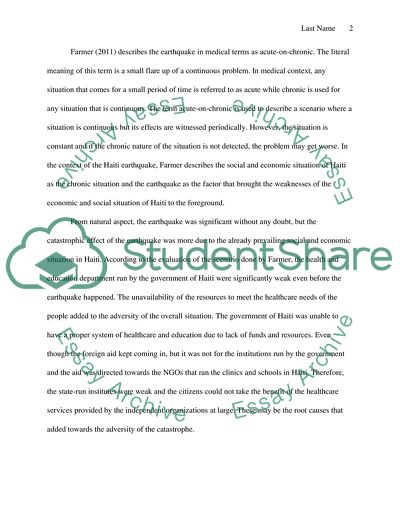Cite this document
(“Evaluation of Haiti: After the Earthquake Book Report/Review - 1”, n.d.)
Evaluation of Haiti: After the Earthquake Book Report/Review - 1. Retrieved from https://studentshare.org/environmental-studies/1766974-review-and-evaluation-of-haiti-after-the-earthquake
Evaluation of Haiti: After the Earthquake Book Report/Review - 1. Retrieved from https://studentshare.org/environmental-studies/1766974-review-and-evaluation-of-haiti-after-the-earthquake
(Evaluation of Haiti: After the Earthquake Book Report/Review - 1)
Evaluation of Haiti: After the Earthquake Book Report/Review - 1. https://studentshare.org/environmental-studies/1766974-review-and-evaluation-of-haiti-after-the-earthquake.
Evaluation of Haiti: After the Earthquake Book Report/Review - 1. https://studentshare.org/environmental-studies/1766974-review-and-evaluation-of-haiti-after-the-earthquake.
“Evaluation of Haiti: After the Earthquake Book Report/Review - 1”, n.d. https://studentshare.org/environmental-studies/1766974-review-and-evaluation-of-haiti-after-the-earthquake.


